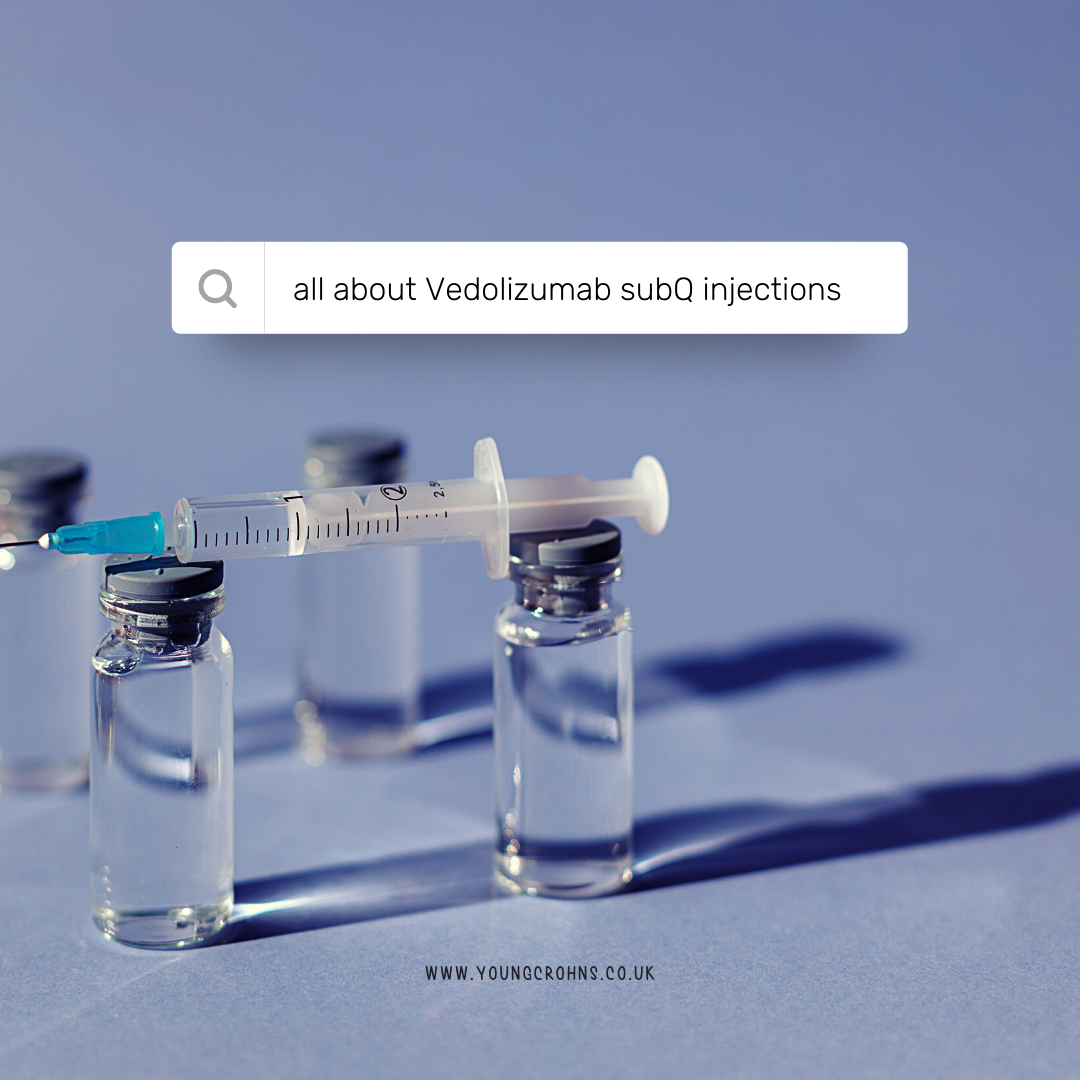
Six Years On – Diagnosis
It was a desperately horrible August, 2011. I’d never suffered with health problems, but this current run of feeling unwell just wasn’t going away. If anything, every day, it got worse. So much that weeks had passed and I just could not remember the last time I had eaten a meal, the last time I’d had a solid BM and the last time I hadn’t been sick. I was a mess. Nothing at this point, pointed any medical professional towards my eventual diagnosis with IBD; it was first described as a stomach bug. Then the stomach flu. Finally Gastroenteritis and I was admitted to hospital; almost three weeks after my first symptoms. A couple of days of IV fluids, I was discharged. But I didn’t feel better. I didn’t feel at my worst, but that would come.
My first experiences of hospital were not good. I’d never spent a night in hospital before and it was scary. I was alone, unsure of what was happening to me, let alone what would happen to me. I didn’t know what I would be asked to do, what I would have to endure to get a diagnosis, let alone proper management of my disease once it became evident that this was a long term, chronic illness I would battle for the rest of my life.
Six years have passed since those early days, and they were not my darkest days. They have been recently; they happen every year without fail it seems. But I have come through them; even when I think I won’t get through them, I do somehow rally and push myself through to the other side. I don’t always do it with the grace and confidence I would like to exude; at least once during an admission I have a hissy fit – sit in my hospital bed, hooked up to meds and fluids, arms crossed, waiting for my consultant or surgeon to come in and ask me what’s wrong. I’ve never yelled or raised my voice but I have been pretty stubborn. Why? Because its my damn body that I am putting through these tests, these side effects and these treatments. I know how my guts feel; I feel them every day – especially in those days when they hurt beyond comprehension and beyond words.
I’ve learnt so much in six years! I passed into the realms of being a seasoned IBD patient last year after hitting the five year mark and needing to have surgery. Twice!
So what is it I can take away from having been a IBDer for this long?
- You learn who is important: family, loyal and trustworthy friends, amazing work colleagues, those who only want to see you well again.
- You learn what is important: rest, relaxing, recovering, listening to your body: your guts most importantly, your heart and your mind. You know what is important to you and how it needs to be done and when!
- Fight for your rights as a patient! I’ve spent a long time pushing my consultants to give me answers. To explain to me what is needed of me, what I need to do to get better. I’ve never been one to just do what they say, I need to know why and what we hope the outcome is. Be it a diet or a new treatment plan; I always like to know the end goal. This way, I am able to assess if this is suitable for me, once we get going.
- I always speak honestly and openly to my medical team about my issues. This has been fundamental when in hospital for an admission. I’ve found being direct and not being embarrassed has helped cut my time spent being a) actually in hospital and b) frustrated by the lack of ‘doing’ down a lot.
- You get over being embarrassed about talking about your butt, your bowels and your insides quite quickly. This goes hand in hand with the above. I know that this can be difficult for some people in the beginning but once you embrace how freeing and much simpler things can be with your medical team once you talk about your shit, the relationship gets so much better.
- If you are unhappy with your experience in hospital, take it up with someone. Talk to the ward sister, your specialist nurse, your consultant, or even PALS to get advice. You have a long term, chronic illness. You will likely have to experience hospital on numerous occasions. Receiving good care is part of this. Fight for it if you haven’t had it. It adds so much to the experience you have with your IBD and how you see life when you need to be admitted.
- Don’t be afraid to be persistent. I am on very good terms with my IBD nurse and Stoma nurse. I think this is down to me not only talking honestly with them – something they respect and they can see over time when my bad times come along – but because I always ask them things; via a phone call or more often now, via email. They are my first ports of call in any IBD or stoma storm. They always help as best as they can but they respect that I am patient who looks into their care. And my motto is “If you don’t ask, you don’t get” – Don’t be afraid of the medical professionals! They are there to help you!
- Bad times will happen. Hopefully they don’t happen too often but when they do, be prepared. When I was in a bad cycle of admissions, I ironically had a hospital bag packed pretty much all the time for a three month period. It had my essential hospital items – headphones, music, extra charger, underwear, pjs, facial wipes, spray and sweets – so we just had to pick it up and go to the hospital if in an emergency. This cut stress levels down quite abit and it was a running joke at home of how long that bag would sit without being used. After ostomy surgery, we went almost three months without it.
- It is okay to feel sad that things are going wrong. Being scared is natural and so is being fearful of what could happen in the future. But there is always a silver lining. It can take a while to see it but there is always one. It might not be what you expect and you have to alter your aspirations and your plans, but things going wrong isn’t the end of the world. It just means you have to dig abit deeper, find some fight and get back to being strong. Crying and feeling frustrated is normal too. I’d be lying if I said I’d never cried in front of my medical team or my family or even just in the bathroom, when I could be alone. Giving myself a pep talk in those moments; they can be tough ones. But those pep talks have allowed me to come back stronger.
- Share. Keeping things bottled up is hard. You might not want to be the person who ‘always talks about their illness’ but being chronically ill is what is happening to you and keeping it all inside will drive you slowly insane. Learning how much to say and when is important and that took me along time to master. Ultimately, this blog has helped me get rid of most of my feelings and documenting my life with Crohn’s helps a great deal. Finding motivation to share has been my struggling point this year due to so much happening elsewhere in my life. And striking a balance between my sick days and sharing the positive message of having a stoma has been challenging. But, I want what I write to be honest and real.
I’m sure I’ve learnt more than these big lessons…!
- You get used to being stuck with needles.
- You get used to cannulas and lying in hospital in incredibly awkward places to keep your lines flowing.
- You know which veins are great at getting blood and those used for fluids.
- You can already tell what the new doctors want to do: You are the seasoned patient compared to them!
- You learn techniques on how to sleep in hospital – I use sleep spray, an extra pillow and always listen to music!
- You find ways to get prep for scans down without any problems
- You always take the sedation for procedures!
- You never refuse IV morphine!
- You laugh when doctors realise how long you’ve had this disease and how well you’ve coped
- You don’t get phased by being physically sick.
- You do not mind walking around the ward with your stoma bag out of my pjs; its just more comfortable!
- Medical students will always come and ask you lots of questions about your disease!
- Nurses love you for knowing the system and not bugging them.
- You find some relaxation in being in hospital – this might just be me though..!
- Changing a stoma bag becomes second nature and you get used to it shitting all over you.
- Being nil by mouth becomes a regular occurrence.
- You admire a doctor who can get a pink or even green cannula in you first attempt!
- Describing your poop is just normal now.
- You know the shortcuts to departments throughout the hospital.
- You can remember names of those who work on the ward.
***
Living with IBD doesn’t mean that your life is any less than anyone else. Being sick is just something that happens to us more than any others. It isn’t always a easy or fun time but finding the funny moments or not taking it all so seriously and negativity does help. Poop jokes, finding the silly, medically weird and geeky moments have helped me accept what my life is now. It might sometimes revolve around the hospital and seeing medical professionals but I feel weirdly safe in their care. I’ve spent six years building up a strong relationship with them; based on my own desire to do the best for me in the best proactive way I can. This year I have relocated and that means moving my IBD care to a new hospital in a new area with new medical professionals. Building a new relationship is what awaits me when I return to work in a couple weeks and already, I have great faith that I will get to the same level of trust with these new professionals. I come into their care with six years experience of IBD and what is it like to have that disease ravaging inside of me. I hope they take me as I am, without prejudice.





1 Comments
That Seven Year Itch •
08/05/2021 at 16:30
[…] Six Years On – Diagnosis […]